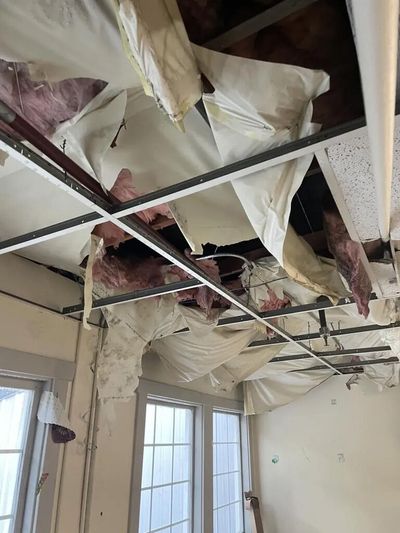Burst pipe closes Seattle opioid treatment clinic serving over 1,000

A burst pipe and flooding has shuttered a Seattle clinic that provides opioid addiction treatment to over 1,000 people.
On Sunday, a sprinkler valve at Evergreen Treatment Service’s Seattle clinic burst, likely the result of subfreezing temperatures. The burst valve caused water to spew from the second floor of the building for nearly an hour before the line was shut off.
The clinic remained largely inaccessible as of Friday due to damage, said Sean Soth, a director at Evergreen Treatment Services. Without access to the building due to water saturation and air quality, crews cannot assess the damage or provide an estimate of when the center will reopen.
In the meantime, the organization, which provides opioid use treatment at five centers across the Puget Sound area, is scrambling to prevent setbacks for people in recovery. Facility employees are running two 15-passenger shuttle buses from the organization’s closed Seattle clinic to its Renton location, as well as supporting patients opting to access treatment at other facilities.
King County saw nearly 1,300 fatal overdoses in 2023, over 1,050 of which involved fentanyl. The number of fatal fentanyl overdoses surpassed a record set the previous year by 47%, sounding yet another alarm about the potency of the deadly synthetic opioid.
Water flooded each floor of the building and caused portions of the ceiling to collapse onto the main floor. In the basement, 16 inches of standing water flooded the lowest point, Soth said.
The organization has put out a call for donations on its website. Local and state officials are helping secure a temporary structure to provide services from, but “we still have real concern about the cost and the impact that any repair or replacement will have on the agency,” Soth said.
Nearly half of the population the organization serves is homeless, and seeking treatment is “a testament to the resiliency and the desire of this population to work towards health and wellness,” Soth said.
Actually receiving treatment is often a “huge barrier, let alone when we add something as significant as this,” Soth said, “and the more we can do to support them, we make that an easier process.”